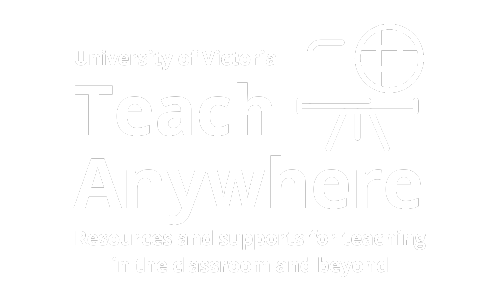Transcripts & Captioning for Students
Automatic transcription is turned on in Echo360. Live-captioning is now available in Zoom and Teams.
1. Faculty/instructors are not required to review or edit all transcripts and captions. This includes automated live captioning in Zoom or Teams occurring in “real time” and/or auto-generated transcripts in video files uploaded through Echo360
2. Faculty/instructors are asked to include the following statement in their course site and/or syllabus and to make students aware of the likelihood of automated transcription and captioning error.
Transcription & Captioning Statement:
Auto-generated transcription and captioning is enabled in this course. Please be aware that automated transcription and captioning is at best 70-90% accurate and by nature will include error. This depends on the subject matter, speaker, audio quality etc. Words prone to error include specialized terminology and proper names. Students are asked to refer to the audio feed for clarification of any errors. If you find transcription or captioning that is offensive, please contact your instructor and/or teaching assistant so that they are aware. If you require captions as part of an academic accomodation, please contact CAL.
3. For 2020/2021 courses where faculty/instructors have identified known and persistent issues related to transcription and captioning, and/or auto-generated errors that are offensive in nature, instructors may seek additional TA hours to complete this specific task. Contact your chair or director to request targeted funding through VPAC.
4. Faculty/instructors also have the option of turning off transcription and closed captioning if the other solutions are not feasible.
Notes for faculty/ instructors:
- An announcement including the above captioning statement will also be posted in Brightspace and on Learn Anywhere for students.
- The following information is available on editing captioning in Echo360.
- For more information on the importance on captioning, please review captions for live sessions and videos.
For Students with Approved Academic Accommodations Related to Accessing Audio Content via Transcribers
Students with approved academic accommodations related to accessing audio content may have the use of a transcription service as a specified component of their accommodation. Other students will have an accommodation that permits them to record audio content. In both these instances, faculty/instructors will be aware of the accommodation as detailed in the accommodation requirement letter.
To address transcription accommodations, there is a service provider and technology/software (e.g. Typewell or CART) to ensure that course audio materials are accessible. Typewell provides meaning-to-meaning transcription and CART is a word for word service. The numbers of students with this transcription type of accommodation is relatively modest each term (e.g. 15 students in approximately 40 courses this term). This service is not available nor scalable to other students in the class. There are no workload implications associated with these types of accommodations.
Exam Set-up and Invigilation for Students with Academic Accommodations
Two Learning Experience Designers – Accessibility (LED-A) have been hired to provide support to faculty/instructors in setting up online courses and exams to address the needs of students with academic accommodations. This includes those students who have specific requirements related to assessments, (e.g. timed exams). LED-As are available to set up special access for exam accommodations, consult and assist with set up of alternate assessment options including gradebook adjustment, and support the use of the accessibility features available in UVic’s learning technologies.
LED-As may be contacted either through ltsisupport@uvic.ca or through the Centre for Accessible Learning. LTSI and CAL are working closely together on this project.
The invigilation of timed exams for students with academic accomodations continues to be one area where additional supports are needed. You may now seek additional TA hours to complete this specific task. Contact your chair or director to request targeted funding through VPAC.
